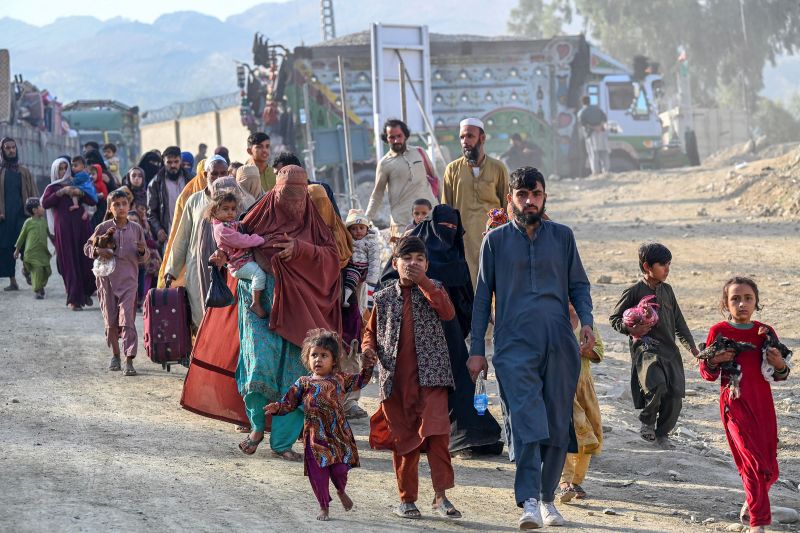Pakistan is extending the stay of nearly 1.5 million registered Afghan refugees – but its mass deportation of “illegal immigrants” will continue, authorities said.
Afghan refugees in Pakistan with Proof of Registration (POR) cards will be able to stay in the country until June 30, 2025, Prime Minister Shehbaz Sharif’s office said Wednesday.
The fate of 1.45 million refugees whose PORs expired at the end of June had previously been in doubt, with many fearing they’d be deported.
News of the extension came one day after the United Nations’ high commissioner for refugees visited Afghanistan and urged Pakistan to extend the POR cards.
“Glad that Pakistan’s tradition of hospitality is maintained,” Filippo Grandi wrote on X Thursday.
But Pakistan’s Ministry of Foreign Affairs disputed the UN’s claims that Islamabad had put on hold its plan announced last October to deport undocumented Afghan refugees.
Pakistan is home to one of the world’s largest refugee populations – most of them from Afghanistan. But the country has not always welcomed Afghan refugees, subjecting them to hostile living conditions and threatening deportation over the years.
More than 3 million Afghan refugees, including registered refugees and more than 800,000 undocumented people were living in Pakistan as of March 2024, according to UNHCR data.
Some fled their home country decades ago during the Soviet invasion, while other Afghans sought refuge in Pakistan when the Taliban retook Afghanistan in 2021, implementing its oppressive rule.
Last October, Pakistan gave undocumented Afghans weeks to leave or face deportation, claiming Afghan nationals carried out 14 of 24 major terrorist attacks in Pakistan last year. Between September 15, 2023 and the end of June, about 650,000 Afghans had returned home, according to the UNHCR. Some 32,000 of them were deported.
They’re returning to a country under the control of a militant regime that has imposed a form of gender apartheid and where millions live in poverty.
A UN report published Tuesday detailed human rights violations by the Taliban’s so-called morality police – which have disproportionately targeted women and girls – creating a “climate of fear and intimidation” in Afghanistan.
Moniza Kakar, a lawyer who helps Afghan migrants navigate Pakistan’s legal system, said the POR card extension will not provide stability for all refugees.
“There is still a huge worry amongst families of being split because of these issues of documentation.”
Thyagi Ruwanpathirana, regional researcher for South Asia at Amnesty International, said the human rights group had “documented extensive delays and barriers refugees face in obtaining POR cards.”
The status of 80,000 Afghan Citizen Card holders, another form of registration for Afghan refugees in Pakistan, was also uncertain, Ruwanpathirana added.
“We urge the government of Pakistan to formally suspend its ‘Illegal Foreigners Repatriation Plan,’ stop all deportations, and develop a national legal framework to regulate access to refugee status in line with international refugee law,” she said.
This story has been updated with additional information.

